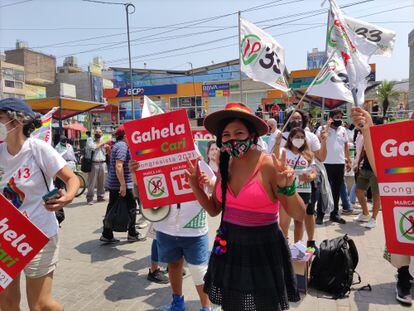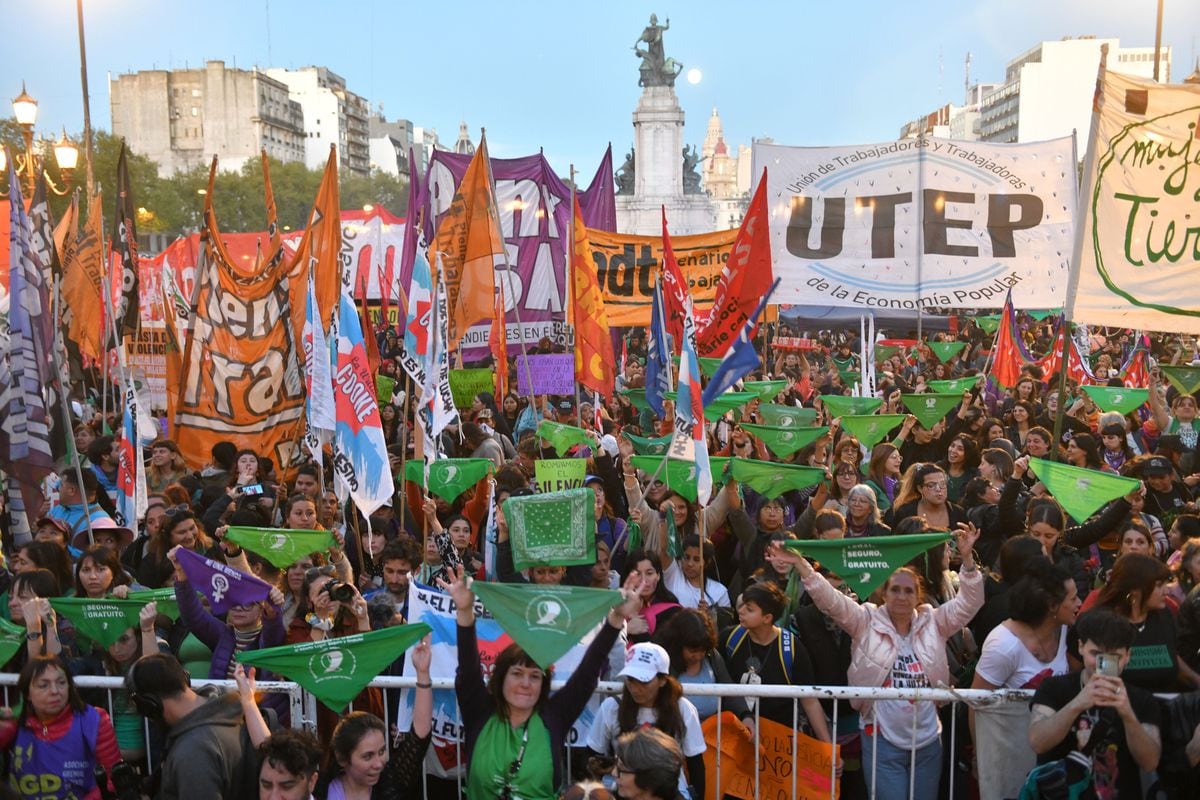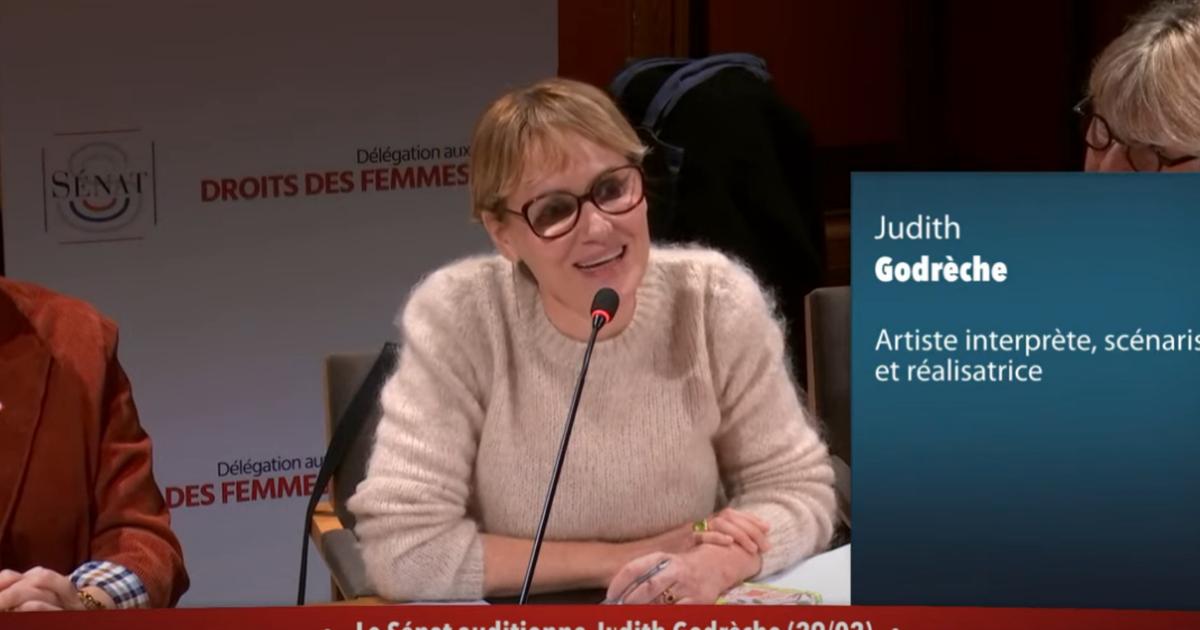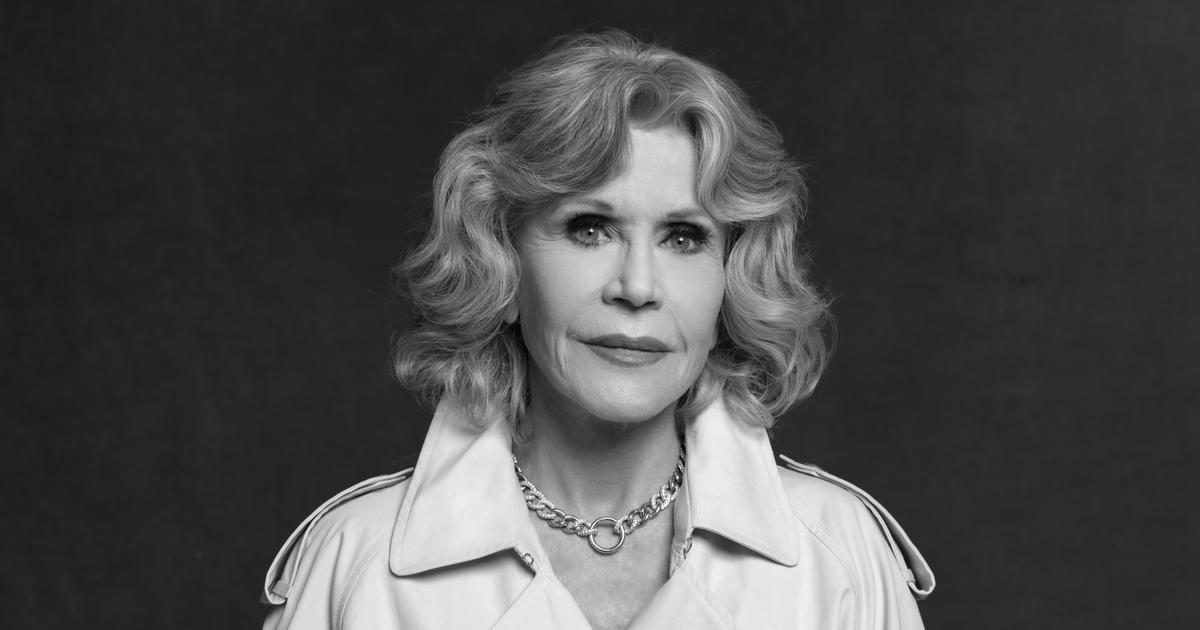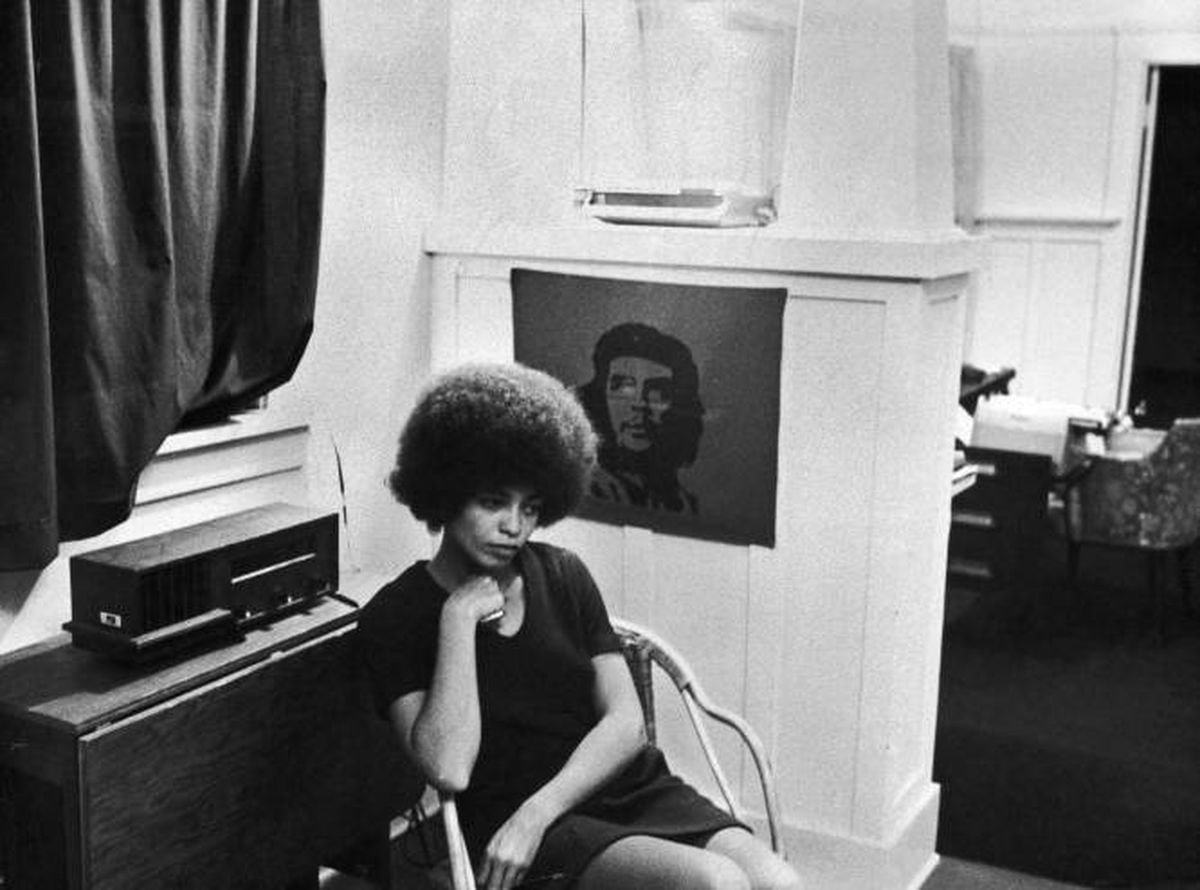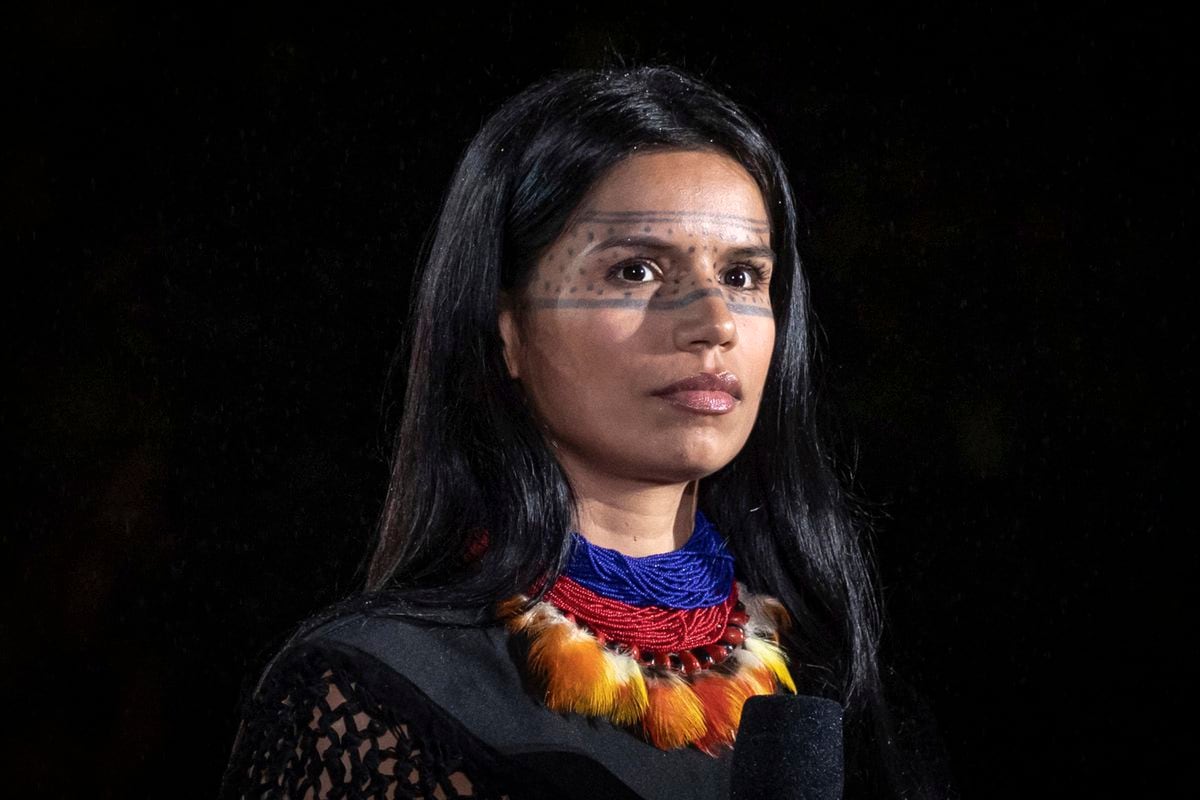Gahela Cari, trans candidate to the Peruvian Congress, participates on March 31 in a campaign walk in Gamarra, LimaJacqueline Fowks
Transsexual activist Gahela Cari Contreras, 28, is the daughter of Andean peasants, great-granddaughter of an Afro-Peruvian woman, and an educator and defender of the rights of trans people in Peru.
Now she has her sights set on Congress, which will be voted on next day 11. In her second time as a candidate, her main proposal is a sexual education law with a gender perspective so that other people do not suffer the violence that she experienced since the childhood and that continued when she was thrown out of her parental home and from her job in a law firm as soon as she decided on her gender transition.
She is presented by the Juntos por el Perú party, which now has no parliamentary representation, but polls predict her options to become a deputy.
His father was a leftist leader who opposed the Shining Path terrorist group in the Puno region, on the border with Bolivia, and his mother, a peasant leader from Ayacucho.
Fleeing the violence, they moved to the Ica region, on the coast: there the candidate was born.
"Like many people during the times of terrorism, the poor received violence from all sides, there are women in my family who have been victims of forced sterilization or by the Police, the Army and terrorists," he says.
Cari began her work in civil society very early: first she was an activist in the rescue of abandoned dogs, then a university leader when she was studying Law, and as a worker on the agro-export farms she was a member of the Association of Young Peasants of the Pisco Valley, a Ica province.
"The peasant movement has greatly influenced my training because I am the daughter of peasant leaders, since I was very young I have been in activities to fight for human rights and for the land.
And then the feminist movement came into my life to allow me to be reborn and see the world in a different way, ”she says.
Cari migrated to Lima in 2017, after she obtained her degree as a Technician in Business Administration, a career that she studied in parallel with Law.
However, she has not been able to apply for her law degree because the university does not recognize her current gender identity.
During the election campaign, he has been the target of transphobic attacks, especially by a far-right candidate for Congress.
“Now I am sheltering in the house of a friend.
There was a transphobia campaign, but the threats were no longer only online, a group went to find me at my house and published my address, trying to attack me, "he says.
Is violence against trans people higher in Peru than in the rest of the region?
The candidate responds, citing a report, that "the life expectancy of trans people in Peru is 30 years", five years less than the average for this group in Latin America.
”89% of trans people in Peru do not have health insurance, 70% are sex workers and 50% dropped out of basic studies, that is, primary and secondary.
And only 8% have a DNI that recognizes their identity.
Unfortunately, in this country, trans people live in a situation of vulnerability and poverty not because we were born that way, but because we have been exposed to discrimination and permanent transphobia.
The result is that we dedicate ourselves to the most precarious tasks, ”he explains.
The candidate for the Juntos por el Perú party - which has Verónika Mendoza as a candidate for the presidency - defends the need to train magistrates on the gender approach because identity change procedures depend on them.
"There is a psychological cost [in the process] because it is long and revictimizing: they require surgeries and tests according to the prejudices of each judge because they have not been trained with a gender perspective and they violate our rights," he adds.
This week the Women's Commission of Congress approved an opinion on the gender identity law, but Cari finds it insufficient because it does not include the rights to health, education and work for people like her.
"Trans people are expelled from the educational system, due to transphobic bullying, in the best of cases we drop out of school and in the worst of cases we end up committing suicide," he notes.
Despite this, the activist, who speaks Quechua, points out that during her campaign she has found a good response to her proposals.
“What we have seen the most is people looking for a change, tired of machismo, extractivism, the economic model that has only generated inequality.
She is fed up with the media or traditional politicians stigmatizing those of us who want a change, ”she says.
No rights
“I dedicate myself to doing politics thinking about those who need it most: women, indigenous people, LGTBI people, trans people, people with disabilities, the elderly, children and adolescents;
especially those who have the least.
I am not concerned with those who already have their rights.
If you have your ID with your name, you don't need that right, but there are people who do ”, he highlights.
"I do politics because I want these changes to take less time, because the longer they take, the more victims of femicides and people killed by hate crimes," he says.
The only transgender candidate for the Peruvian Congress still remembers with pain when her mother kicked her out of her home.
"When I was 20 I had to go with what I was wearing, an ordeal began.
I never thought that the person who had changed my diapers, who had led me to the protests, who had given me a vision of fighting for justice was going to throw me out of the house.
I had to sleep on the streets, it was the hardest moment because I was forced to work in prostitution, "he says.
"I began to transition and lose the privileges that I had not realized I had.
I was fired from work in a law firm because I was wearing blouses, a jacket and heels.
The teachers that I admired because they fought for justice refused to give me exams because I put my name as it is on the DNI, but I dressed like now ”, he adds.
However, several years later he has been reunited with his family.
Today his mother and her friends wear the green scarf as a symbol of the legalization of abortion and promote the rights of LGTBI people.
"At the beginning [of the transition] I learned about feminism because of the sisterhood that feminist women showed me.
In that process, I discovered that my mother kicked me out of the house because she was not educated with a gender perspective, ”she explains.
Subscribe here to the EL PAÍS América newsletter
and receive all the informational keys of the region's current affairs

